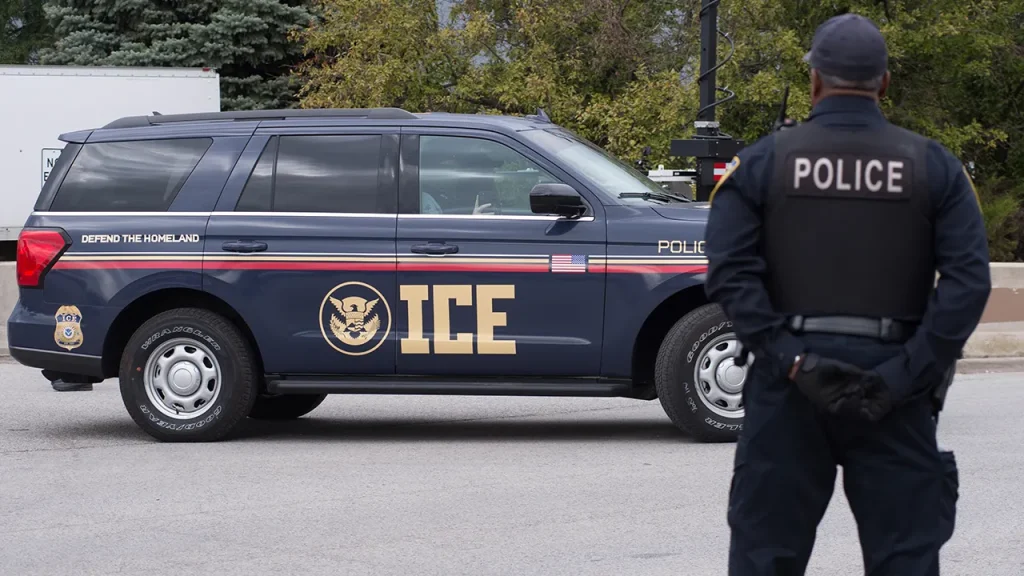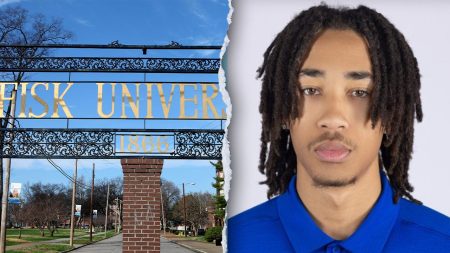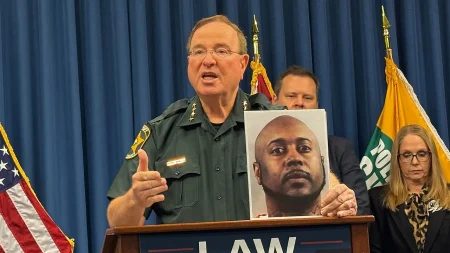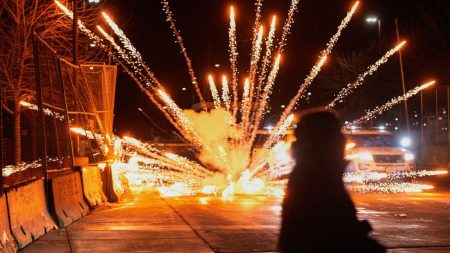An Early Morning Incident: ICE Officer and Honduran Man Injured in Phoenix Traffic Stop
In the pre-dawn hours of Wednesday morning, what began as a routine traffic stop along Interstate 17 in north Phoenix quickly escalated into a troubling confrontation that left both an Immigration and Customs Enforcement (ICE) officer and a Honduran man injured. Jose Garcia-Sorto was pulled over at approximately 4 a.m. by ICE officers for reasons that remain unclear. According to Department of Homeland Security officials, Garcia-Sorto initially complied but then suddenly attempted to flee the scene as officers approached his vehicle. In the chaotic moments that followed, an officer found himself in the path of the accelerating vehicle and, “fearing for his life,” discharged his service weapon twice, striking Garcia-Sorto’s vehicle. The incident has now sparked an FBI investigation, leaving a family in distress and raising questions about the circumstances surrounding what should have been a standard traffic stop.
The aftermath of the shooting left Garcia-Sorto hospitalized in stable condition, while the ICE officer was also taken for medical treatment with unspecified injuries. The scene disrupted local traffic as authorities closed the northbound exit ramp at Dove Valley Road to conduct their investigation, though it has since reopened. The Department of Homeland Security has provided limited details about the incident, stating only that the officer fired defensively when threatened by the moving vehicle. This lack of comprehensive information has left Garcia-Sorto’s family frustrated and worried, creating a vacuum of certainty about what precisely transpired during those tense moments on the interstate.
Behind the headlines and official statements lies a deeply human story. Anahi, Garcia-Sorto’s wife, shared with local media the profound impact the incident has had on their family. “He would get home and hug the kids,” she explained, revealing the painful void his absence has created in their home. “And to see that he didn’t get here yesterday, it really hurts a lot, because I always wait for him here.” Her account paints a picture of a family man who was simply on his way to work when the confrontation occurred. The emotional toll on the family has been compounded by what Anahi describes as a troubling lack of information from authorities, claiming officials have told her that her husband is hospitalized under a different name and cannot receive visitors or communicate.
The case takes on additional complexity as Anahi reportedly acknowledged to Arizona’s Family news outlet that both she and her husband are in the United States illegally. This admission contextualizes the encounter within the broader, often contentious landscape of immigration enforcement in America, particularly in border states like Arizona. Despite their circumstances and the outcome of the encounter with ICE officers, Anahi expressed a remarkable sense of compassion, stating, “What they’re doing is bad, but I don’t wish anything bad towards them, because I am not God to judge them. I pray for them.” This sentiment reveals the complicated emotional terrain navigated by families caught between their desire for security and stability and the reality of their unauthorized status in the country.
The incident occurs against a backdrop of heightened tensions surrounding immigration enforcement. Recent incidents involving ICE facilities have included violent confrontations, including a shooting at a Dallas facility that resulted in multiple injuries and fatalities. These events underscore the volatile nature of immigration enforcement work and the potential for routine operations to escalate unpredictably. For officers working in this environment, the balance between performing their duties and ensuring personal safety presents constant challenges. For individuals like Garcia-Sorto, encounters with immigration authorities carry life-altering implications, regardless of the specific circumstances that precipitate them.
As the FBI conducts its investigation into this incident, the consequences for Garcia-Sorto and his family remain uncertain. Anahi has indicated that if her husband is deported to Honduras, she plans to return there with their children, effectively dismantling the life they have built in the United States. This potential outcome highlights the profound personal stakes of immigration enforcement actions, which can separate families and fundamentally alter life trajectories. The Phoenix incident, while seemingly straightforward in its basic outlines, thus becomes emblematic of the complex human stories that unfold daily at the intersection of law enforcement, immigration policy, and family life in America. As authorities work to establish a clearer picture of what happened on that early Wednesday morning, a family waits anxiously to learn what future awaits them, caught in a limbo that extends far beyond a hospital room in Phoenix.










